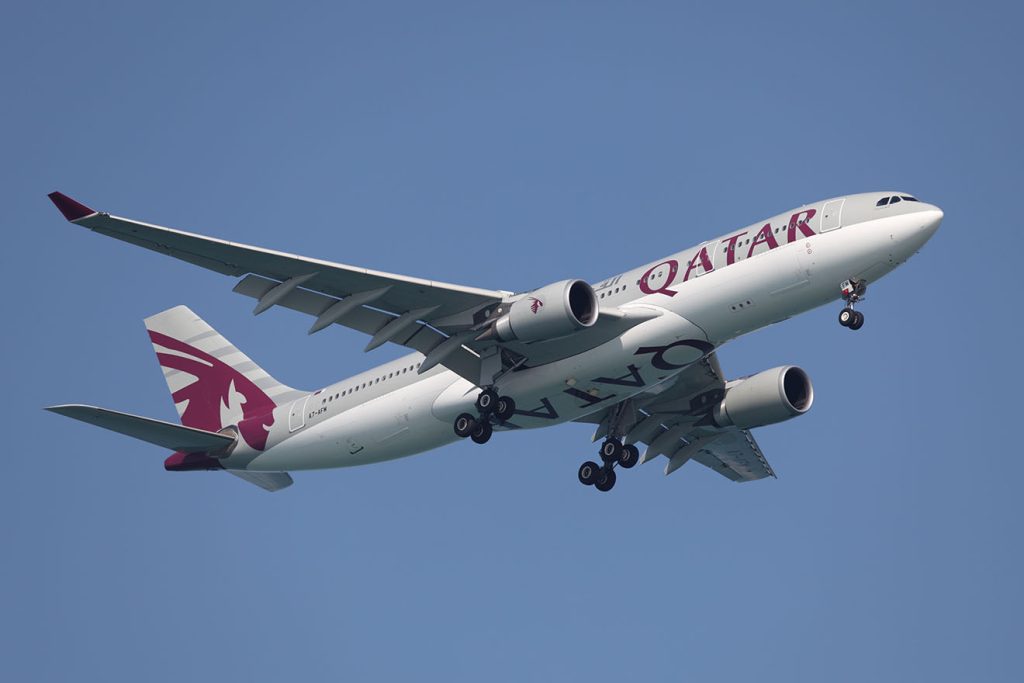The Australian government’s rejection of Qatar Airways’ bid to expand its operations within the country has stirred controversy. While the government asserts the decision is to protect the national interest, allegations have surfaced regarding potential influence from competitors within the airline industry.
The Doha-based airline sought permission to increase its flights by an additional 21 services to Australia’s primary airports. However, Australia’s Transport Minister Catherine King formally declined the request in July, stating that the proposed expansion is not in line with national interest.
This rejection was shocking for Qatar Airways executives, who were planning to almost double their flights in Australia. It sparked scrutiny from a Senate inquiry, focusing on the reasons behind the refusal.
As expected, allegations surfaced from the opposition, suggesting that Australia’s national carrier, Qantas, influenced the decision to stifle competition. Interestingly, Qatar Airways learned about the decision through media reports, with official confirmation arriving several days later, adding to the confusion.
Matt Raos, the airline’s senior vice president of global sales, has shown clear disappointment and confusion regarding this decision. He stated, “We really can’t understand why.”
He emphasised the airline’s substantial contributions to Australia’s economy, including generating $3 billion in economic benefits.
Australia’s Bilateral Air Agreement with Qatar
According to the Australia-Qatar Air Services Agreement, the airline is permitted 28 roundtrips per week to the country’s four major cities: Brisbane, Melbourne, Perth, and Sydney. However, it enjoys unlimited access to all other Australian ports.
Currently, Qatar and Fiji are the only countries where carriers are operating at the maximum limits of their permissions into major Australian airports. The government’s aviation green paper emphasises granting bilateral air rights “ahead of demand” to ensure economic and connectivity benefits.
While some countries have “open skies” agreements with Australia, allowing unlimited flights, Qatar Airways faces restrictions due to the bilateral agreement. And, as Qatar Airways has used its full capacity, it sought permission to extend its capacity to major Australian ports.
The “Surprising” Rejection
However, its aspirations to extend its reach to more destinations within Australia have been met with a resounding refusal from the Australian authorities.
The airline’s CEO, Akbar al-Baker, expressed his sentiments regarding the situation. He told CNN in an interview, “We found it to be very unfair that our legitimate request was not granted, especially at a time when we were so supportive of Australia,”
He highlighted the airline’s efforts to repatriate stranded citizens from various parts of the world to Australia during the COVID-19 pandemic. Additionally, al-Baker noted Qatar Airways’ contribution to transporting essential medical supplies and spare parts during this challenging period. After such pandemic support, the decision to block additional flights is “unfair,” according to the airline’s chief.
Besides being a controversial decision, this will turn out to be costly for Australia. According to figures obtained by the Australian Financial Review from the airline industry, rejecting Qatar’s proposal for additional flights could result in a loss of between $540 million and $788 million in annual economic activity. These estimates are said to be derived from calculations involving approximately 50% of seats being filled by international travellers.
The Reasons Behind Refusal
Catherine King stated during the Australian Financial Review Infrastructure Summit that she made her decision without factoring in the commercial interests of either Qantas or Virgin.
She explained, “The government has concluded that fulfilling the Qatar Civil Aviation Authority’s plea for extra services isn’t aligned with our national interest. We consistently prioritise the creation of stable, lucrative job opportunities for Australians within the aviation industry when evaluating such decisions.”
While discussing the “context” behind her decision, she also referenced the invasive body searches carried out on a group of Australian women at Doha’s Hamad International Airport in Qatar. In October 2020, over a dozen female passengers underwent “invasive” and “humiliating” internal examinations in Qatar following the discovery of an abandoned newborn infant at the airport.
Scepticism Persists Amid Rising Controversies
However, King’s decision came under heavy political scrutiny, with accusations levied against her of favouring Qantas, whose former CEO argued that granting Qatar Airways additional capacity would disrupt the local aviation market.
Adding fuel to the fire, Australian Deputy Prime Minister Richard Marles said he was not consulted regarding the decision made by Ms King to reject Qatar Airways’ request.
Besides, Bridget McKenzie, the leader of the National Party of Australia, openly accused the government of protectionism.
“I firmly believe they are engaging in protectionism to shield Qantas”
However, King has denied all the accusations related to this controversial decision and is continuously defending her decision.
“This decision was made keeping national interest in mind, and there wasn’t any single factor that influenced my decision either way,” stated Ms. King.
Qatar Airways Can Apply in the Future
Despite the persistent rejection, the chief executive of Qatar Airways is confident that the decision will be reversed. Plus, Ms. King said, the airline can reapply in the future, and the decision will be made according to the national interest in mind.
Final Verdict
At present, there are more questions than answers. Why was Qatar Airways not informed of the decision until it became public knowledge? Why was the rationale behind the rejection not clearly articulated? How influential was lobbying in the final verdict?
Moreover, will these controversies surrounding the country’s airline industry negatively impact Australia’s international relations, or are they indicative of anticipated competition within the aviation sector? These lingering uncertainties underscore the importance and immediacy of conducting a comprehensive and impartial Senate enquiry.
Do you think the Australian government’s decision to decline Qatar Airways’ bid for extra flights is justified?
References
- ‘Chapter 2 – Air service agreements and the Qatar decision’, Home – Parliament of Australia (Web Page) <https://www.aph.gov.au/Parliamentary_Business/Committees/Senate/Commonwealth_Bilateral_Air_Service_Agreements/cbasa/Report/Chapter_2_-_Air_service_agreements_and_the_Qatar_decision>
- Visontay, Elias, ‘Qatar Airways has flown into a political storm. Here’s everything you need to know’, the Guardian (Web Page, 8 September 2023) <https://www.theguardian.com/australia-news/2023/sep/09/qatar-airways-australian-political-saga-flights>
- ‘Qatar Airways CEO says Australian decision to block flights ‘very unfair’’, Al Jazeera (Web Page, 17 September 2023) <https://www.aljazeera.com/news/2023/9/17/qatar-airways-says-australian-decision-to-block-flights-very-unfair#:~:text=Last%20week%20King,%20the%20transport,Hamad%20International%20Airport%20in%20Qatar.>
- ‘Qatar Airways Rebukes Australia’s Decision to Block More Flights to the Country – Business Traveler USA’, Business Traveler USA (Web Page) <https://businesstravelerusa.com/news/qatar-airways-australia-denied/>



